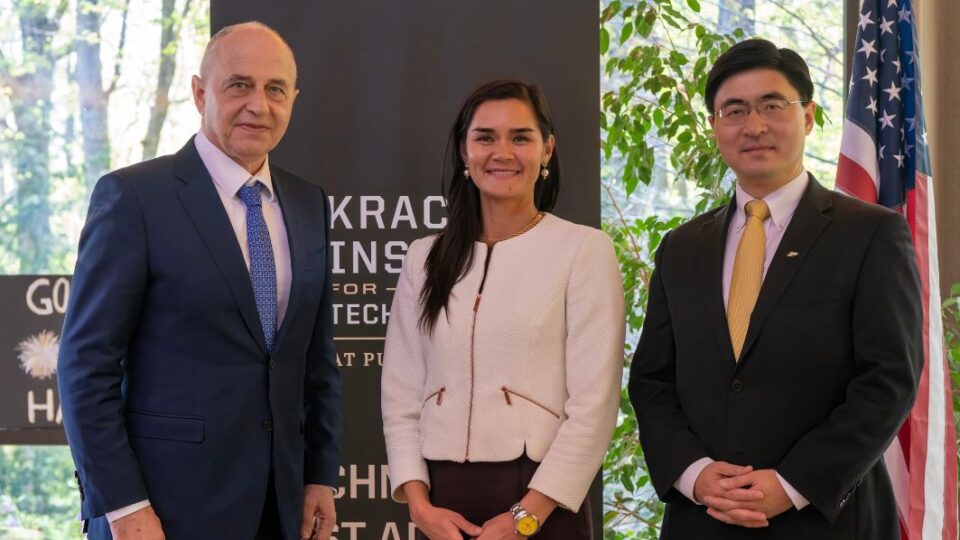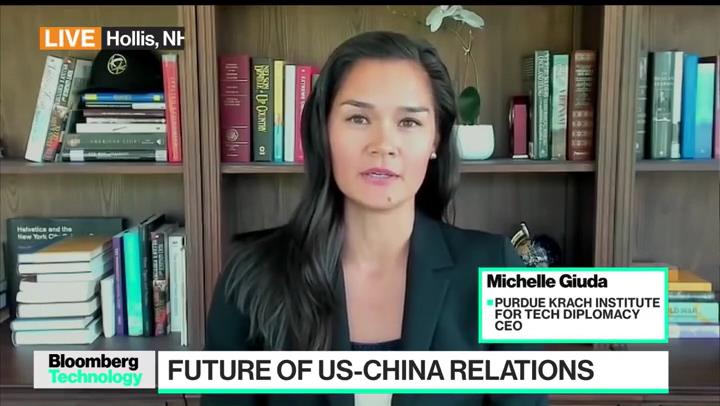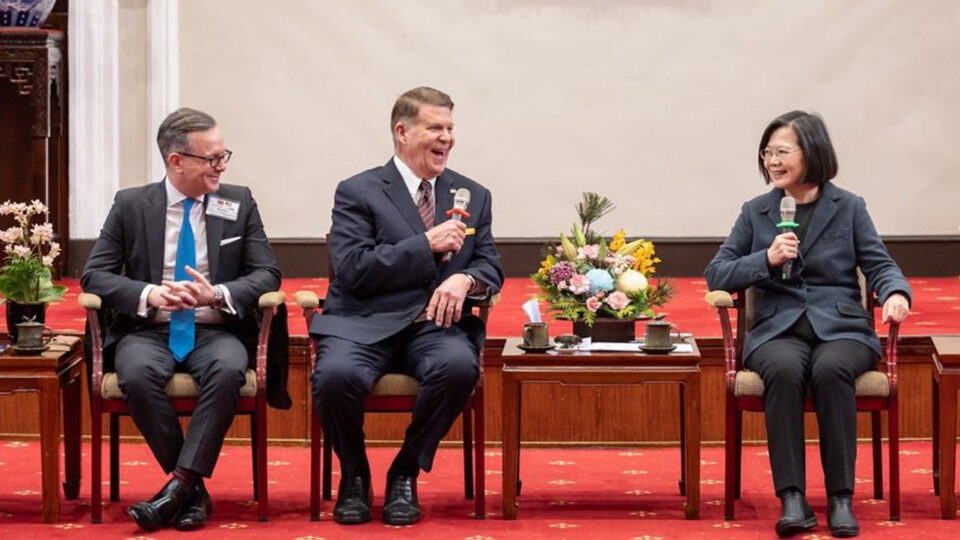Krach Institute for Tech Diplomacy at Purdue Expands Ties with NATO
05.10.24
The Krach Institute welcomes NATO Deputy Secretary General Mircea Geoană on April 25, 2024. Visit underscores commitment to leveraging innovation and technology for the defense and security of the United States and the Alliance.

NATO Deputy Secretary General Mircea Geoană Visits the Institute,
Expresses Shared Vision on the Advancement of Trusted Technology
WEST LAFAYETTE, IN – The Krach Institute for Tech Diplomacy at Purdue (KITDP) was honored to welcome NATO Deputy Secretary General Mircea Geoană on April 25, 2024. The visit to the Institute’s headquarters at Purdue University underscored a shared commitment to leveraging innovation and technology for the defense and security needs of both the United States and the Alliance.
During his visit, Deputy Secretary General Geoană engaged in discussions highlighting key areas of collaboration between NATO, the Krach Institute, and Purdue, emphasizing the strategic importance of the innovation and adoption of trusted technology to safeguard citizens across Allied countries. DSG Geoană also toured Purdue University’s renowned Birck Nanotechnology Center and the Digital Nuclear Reactor and engaged with private sector representatives, as well as Ukrainian students and faculty, underscoring the global reach and impact of this collaboration.
“We are grateful to Deputy Secretary General Mircea Geoană for visiting the Krach Institute for Tech Diplomacy at Purdue and his steadfast commitment to advancing trusted technology. His leadership on initiatives such as the Clean Network have been instrumental in securing high tech across the Alliance from authoritarian threats” said Michelle Giuda, CEO of the Krach Institute for Tech Diplomacy at Purdue. “Today, the stakes could not be higher. At the Krach Institute, we are proud to work together with NATO to ensure that technology fuels a new era of collective security, freedom and prosperity.”
“Technology is changing our societies, but it is also changing security and warfare. To maintain our technological edge, we need to innovate and adapt faster than our adversaries across all EDTs. And we need to make better use of our academia powerhouse. This is why I am at Purdue University today,” said NATO Deputy Secretary General Mircea Geoană. “I believe that the Krach Institute and Purdue are pioneers of new ways to organize our societies to win this competition. We will continue to explore opportunities to collaborate in order to accelerate the secure and trusted adoption of dual use technologies.”
Geoană, who chairs the NATO Innovation Board and serves on the Krach Institute’s Advisory Council, and Giuda expressed the intent to unite the best and brightest innovators from the Allied countries, Purdue University, and like-minded partners across Indiana’s “Hard Tech Corridor” of the United States, such as the Applied Research Institute (ARI), to ensure the U.S. and the Alliance maintain a technological edge.
Both NATO and the Krach Institute will seek to expand existing cooperation in the responsible innovation and adoption of critical and emerging technologies, work together to establish international standards for trusted technology, and encourage the exchange of teaching, leadership, and research experiences between the Krach Institute, NATO, its members and partners.
###
About the Krach Institute for Tech Diplomacy at Purdue
The Krach Institute for Tech Diplomacy at Purdue is the world’s preeminent trusted technology accelerator. As the leader in the new category of Tech Diplomacy, the Institute integrates technology expertise, Silicon Valley strategies and foreign policy tools to build the Global Trusted Tech Network of governments, companies, organizations and individuals to accelerate the innovation and adoption of trusted technology and ensure technology advances freedom.
Visit the Krach Institute online at TechDiplomacy.org and follow us on X, Facebook, LinkedIn, and YouTube. Subscribe to the Institute’s weekly newsletter Tech Diplomacy Now for the latest news at the intersection of high tech and foreign policy.

